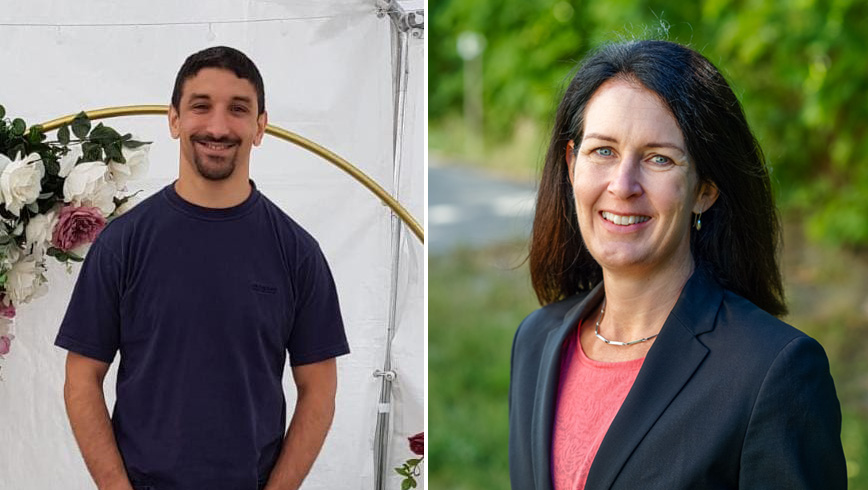Navigate your career with a KTH mentor

KTH alumna Katarina Wall Stenberg and student engineer Kim Taalbi meet regularly as mentor and mentee at the KTH Library café.
“We look at where we are and the way forward. For me, the main thing is that I get an insight into what’s waiting for me on the job market and how companies think,” says Kim Taalbi, who is studying for an MSc in Vehicle Engineering with a focus on engineering mechanics.
Katarina Wall Stenberg is currently Group Manager Technical Infrastructure at Handelsbanken’s IT department. Since the beginning of the academic year, she has also been Kim Taalbi’s mentor.
“We talk about what’s going on, and are careful to include a specific task or issue in each meeting,” she says.
Since graduating from KTH in Vehicle and Systems Engineering in 1995, Wall Stenberg has had roles in project and work-group management in the telecom and transport sectors, the Swedish Police Authority, insurance companies, and in the academic and banking spheres.
For the past four years, she has also chosen to act as a mentor for students from KTH.
“I’m grateful to be able to give back some of the time and energy I received during my own education. It’s also exciting to see how engineering studies have changed since my own days at KTH. Students today have a completely different breadth in their overall knowledge,” she says.
Kim Taalbi says he is aiming for a future career in materials testing, specialising in joint technology and solidity.
“I ideally don’t want to get caught in a rut when it’s time to join the job market. It’s important to keep an open mind and have the courage to try different options. I want to be flexible as regards my specialisation and test my way forward to start with, and then specialise in a specific professional role later on,” he says.
Wall Stenberg notes that today’s KTH students have many of the same thoughts and questions as she did back in the day.
“I recognise a lot of the thought processes, like worrying about grades. My best tip would be to follow your instinct and focus on the subjects you enjoy the most. Ultimately, it’s more important to get your degree than to have really high grades in difficult subjects.”
In her role as Group Manager at Handelsbanken, Wall Stenberg employs engineers herself, and feels it is rewarding and educational to follow current students’ development.
“Nowadays, theoretical studies are more clearly linked to real-life applications, closer to industry, and it’s interesting to follow that development.”
She notes that the teaching approach on the theoretical side is different today, and includes home examination and group work, for instance.
“Students work together a lot more, while in the 1990s we worked alone far more. The way students study today, they really get more prepared for actual working life,” she says.
Kim Taalbi has a background in education: he was a supply teacher in Swedish and maths at secondary school level, and was also a pro-level American football coach for the Stockholm Mean Machines – Sweden’s most successful American football team.
“I can see myself being a mentor in the future, to help KTH students find the career path that’s best for them,” he says.
Text: Katarina Ahlfort
Photo: Private/Malin Norlén
